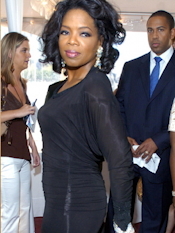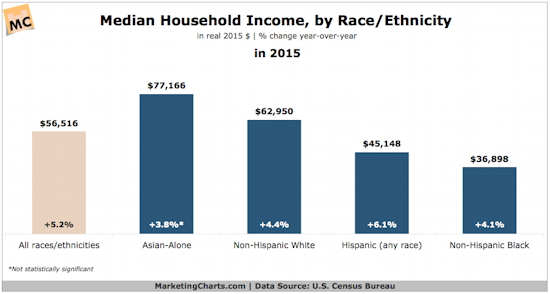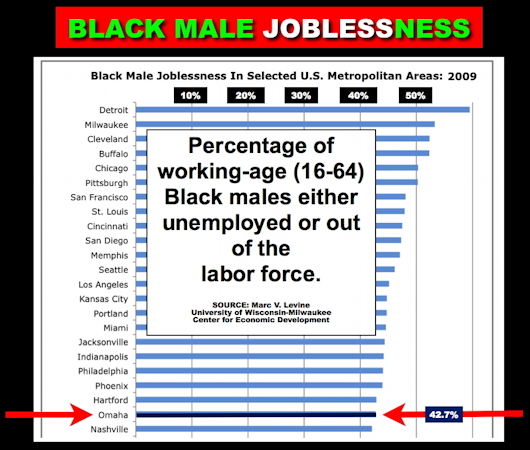
Are you tired of Oprah?
When is enough too much?
As posted on Wikipedia, "Oprah Winfrey (born Orpah Gail Winfrey (born, January 29, 1954) is an American media proprietor, talk show host, actress, producer, and philanthropist. She is best known for her talk show The Oprah Winfrey Show, which was the highest-rated television program of its kind in history and was nationally syndicated for twenty-five-(25) years, from 1986 to 2011 in Chicago, Illinois. Dubbed the "Queen of All Media", she is the richest African-American[8] and North America's first multi-billionaire black person[9] and has been ranked the greatest black philanthropist in American history. Several assessments rank her as the most influential woman in the world. Some people would have you to believe Winfry is the best thing (oops, let's not objectify Winfrey) . . . some people would have you to believe Winfrey is the absolute best individual ever created, and she's the solution to all of the problems faced not just in the United States, but throughout the world. Maybe. Or, maybe not. PHILANTHROPIST - Yes, Winfrey has been extremely successful, and she should and must be proudly recognized for her achievements. She's an inspiration for females (and some men) all over the world, and she's donated millions of dollars to support non-profit organizations, particularly those that align with her personal agendas such as LGBTQI+, sexual abuse, the Oprah Winfrey Leadership Academy for Girls in Henley on Klip south of Johannesburg, South Africa, and much more. MEDIA MOGUL - Plus, her mass media empire footprint includes her own television network, her own production company for feature films and television, media relationships with CBS television and other outlets, magazine publishing, and more. In 1985, Ms. Winfrey landed a co-starring role (her film debut) in Steven Spielberg's "The Color Purple," and she was nominated for an Academy Award. She continues her thespian pursuits with "A Wrinkle In Time," released in 3,980 theaters on March 9, 2018. With a production budget well over $100+ million, unfortunately the film has only returned $39.3 million so far. |
|
So, yes, there are many great things about Oprah Winfrey, and this editoral is not a pretense for a bait-and-switch hatchet job. Unfortunately, with Ms. Winfrey's acceptance speech for the Cecil B. DeMille Lifetime Achievement Award at The 75th Golden Globe Awards the mainstream print and broadcast news media began to herald Ms. Winfrey as a potential candiate for the presidency of the United States in 2020. It would be a huge mistake for Winfrey to run for president, because not everyone is perfect, especially Ms. Winfrey.
IMAGE - For decades, many people, especially Black people considered Winfrey's television success primarily occurred because she resembled the "big-titty, big butt, morbidly overweight or obese, talkative, Aunt Jemima-esque, dark-skinned stererotypical Black woman" that has consistently been endorsed and promoted by White owned and controlled print, film, and broadcast media since before, during, and after the "formal" end of slavery. Historically, that's how White owned and controlled media represent the stereotypical Black woman, from Hattie McDaniel's role as "Mammy" in the legendary 1939 film, "Gone With the Wind" to Theresa Merritt in the 1970s ABC-TV sitcom, "That's My Mama," to Gabourey Sidibe and Mo'Nique in the 2009 film, "Precious." Or, Black women must be presented as prostitutes, promiscuous, or lascivious as with Halle Berry's 2001 Academy Award winning performance in "Monster's Ball," which remains the first and only Academy Award winning performance with graphic sexual nudity by the leading actresses.
Yes, during the nascent beginnings of Winfrey's career in the late 1970s and early 1980s there were many smart, attractive, and media savvy Black women who were not morbidly overweight or obese like Pam Grier, Rosalind Cash, Sheila Frazier, Freda Payne, and Diahann Carroll, but to showcase a smart and very attractive Black woman on a daily basis hosting a nationally broadcast American day-time television program was NOT going to happen - and it never did. Even Rolonda Watts internationally syndicated talk show, which only aired from 1994 to 1997, was short lived. Winfrey was the stereotypical Black woman in the right place at the right time.
SELF-ESTEEM - Winfrey has the almost unlimited financial resources of a billionaire to hire physical trainers and nutritionists to effectively manage her physique, and Winfrey is the author of a weight-loss book, and Winfrey bought a 10% stake (6.4 million shares, for $43 million) in Weight Watchers - but it doesn't matter, because Winfrey lacks the emotional and intellectual capacity to control her weight. Simply put, Winfrey's image "fit" and continues to "fit" the perception and values of White people (media moguls) that Black women must be morbidly overweight or obese, and yes, as pictured below, she has definitely sustained this image.
 |
 |
 |
BEFORE |
AFTER |
FOREVER |
From a global perspective, many if not most countries have labeled the U.S. as grotesquely unhealthly because 4 of 5 adults are morbidly overweight or obese.
Since Winfrey lacks the emotional and intellectual capacity to control her weight, is she the best representative, the best "leader," the best "role model" for the presidency of the United States of America?
FAMILY VALUES - The traditional Black family no longer exists, and it's nearly hopeless for any adult Black woman to find an eligible Black male. As reported in Savvy Magazine from Februrary 1980, "Where Are the Men for the Women at the Top?" sociologist Robert Staples of the University of California stated "Single Black women have even more dramatic problems; there are five-(5) eligible Black women for every Black man." That was 1980, and the disparity has continued to grow, and the disparity will continue to worsen.
As documented in a survey of nearly 11,000 women from July 24, 2002 by the Centers for Disease Control and Prevention, and reported by Laura Meckler of The Associated Press: Black women are least likely to marry and most likely to divorce, with more than half splitting within 15 years. Black women are significantly less likely to marry than White women. By age 30, 81 percent of White women have been married, whereas only 52 percent of Black women. The report notes one explanation, that there are fewer Black men considered marriage material, given their high rates of unemployment, incarceration, and lack of education. When it comes to marriage, Black relationships have been the exception, not the norm.
The traditional Black family no longer exists, and was destroyed in part by a so-called "war on drugs" that remains skewed to target, arrest, convict, and incarcerate more Black men than another other ethnic or racial group. "Marriage rates have fallen for all groups since the 1960s, but more sharply for Blacks than for whites - as with Black income (below).
In 1960, 74% of white adults were married, as were 61% of black adults. By 2011, the black marriage rate had fallen to 56% that of the white rate: 55% of whites were married, compared with 31% of blacks." Source: Pew Research at http://www.pewsocialtrends.org/2013/08/22/race-demographics/. As posted on Wikipedia, Winfrey once commented that she had chosen not to be a mother because she had not been mothered well. At 13, after suffering what she described as years of abuse, Winfrey ran away from home. When she was 14, she became pregnant but her son was born prematurely and he died shortly after birth. Winfrey later stated she felt betrayed by the family member who had sold the story of her son to the National Enquirer in 1990.
Winfrey considers her family experience dsyfunctional, and although she recognizes many Black girls and Black women aspire to be like her, nevertheless, she does not consider herself a role model. Likewise, Winfrey does not believe in marrige, and Stedman Graham has been Winfrey's "plus one" since 1986 - for 32 years. Given the ongoing destruction of the Black family, and Winfrey's negative assessment of marriage and family, is she the best representative for the presidency of the United States of America?
IS SHE BLACK ENOUGH? - Many Black people, especially Black men, are concerned that Winfrey launched the television success of two White men, Dr. Phil McGraw via the "Dr. Phil" program, and Dr. Mehmet Cengiz Öz via the "Dr. Oz" program, but Winfrey has not "anointed" a Black male, or other Black women, with the opportunity for such financial success. Why is that?
Plus, although Winfrey supported the election of Barak Obama as a "change agent" for the presidency of the U.S., ultimately, the overall social and economic status for the overwhelming majority of Black people did not change, has not changed. In fact, as reported by the Chicago Tribune, Black people are the only U.S. racial group earning less in 2017 than in 2000. Black people are the only racial group the Census Bureau identifies that has been left behind. Black people have the lowest earnings of any racial group by far. While median household income for Black people was just over $39,000 last year, it was over $47,000 for Latinos, over $65,000 for Whites and over $81,000 for Asian households. As with Barack Obama, Winfrey would continue to personally benefit or profit from a political career, but she would not be a "savior" to Black people.
If you're Black, shouldn't this matter? If you're White, what difference does it make? Consider this, as reported by the Atlantic in 2011, the cost of one year at Princeton University was $37,000. Conversely, the cost of incarceration for one year at a New Jersey state prison was $44,000. Consider this, if California (which spends over $48,214 per-inmate - the highest in the U.S.) emptied its prisons and sent every inmate to a university of California college it would save over $7 billion a year!!!
So, given Winfrey's lack of affinity toward the cultural and financial empowerment of Black men, how could or why would she be any different than yet another token highfalutin Black person taking up space in the oval office while accomplishing nothing to significantly improve the social and economic status of Black people?
Given the destruction of the traditional Black family, given the extremely high rates of Black male unemployment, the extremely high rates of incarceration of Black males, and the fact that Black males have the highest mortality rate in the U.S., and Winfrey's ongoing negative assessment of marriage to a Black man, is she the best representative for the presidency of the United States of America?
Nope.
Too much Oprah is way too much!I welcome your feedback.
Trip Reynolds
trip.reynolds@yahoo.com
![]()
 |
Reynolds' Rap First Amendment to the United States Constitution - Congress shall make no law respecting an establishment of religion, or prohibiting the free exercise thereof; or abridging the freedom of speech, or of the press; or the right of the people peaceably to assemble, and to petition the Government for a redress of grievances. |









